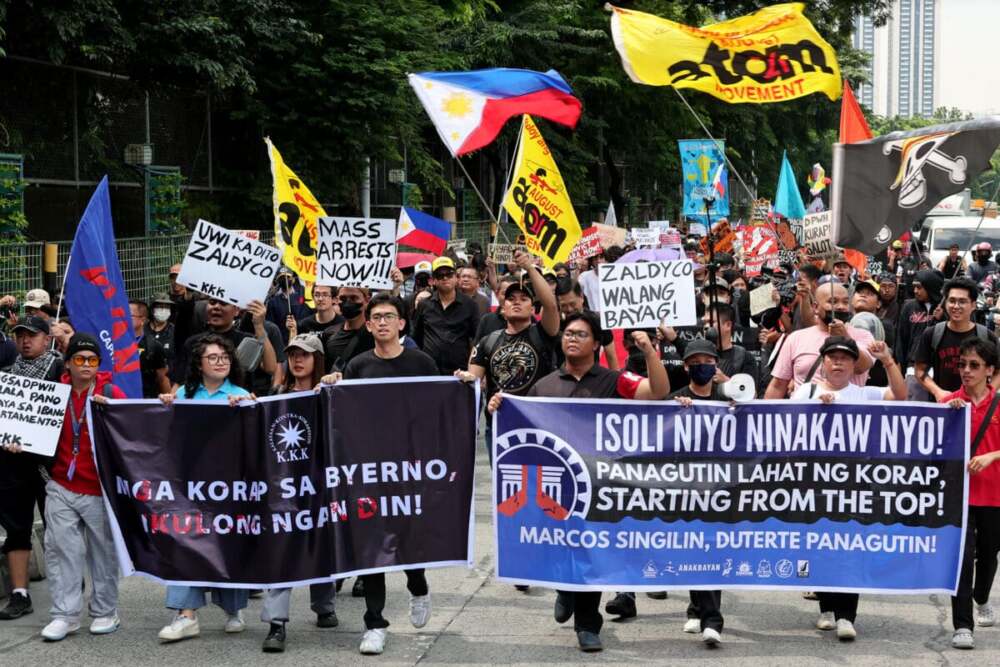Mass protests erupted in Manila and other cities over the weekend as Filipinos demanded accountability in a massive corruption scandal involving flood control projects. What started as frustration over unfinished and substandard infrastructure has escalated into one of the biggest public outcries against corruption in recent years.
A Scandal That Sparked Outrage
Government audits uncovered widespread irregularities in nearly 10,000 flood control projects worth more than half a trillion pesos. Many projects were either poorly constructed, left incomplete, or did not exist at all. Allegations of kickbacks, ghost contracts, and inflated costs fueled public anger.
The outrage intensified after a construction company couple linked to government contracts flaunted luxury cars, igniting further accusations of stolen public funds. For many citizens, the scandal is not just about wasted money but about lives put at risk in flood-prone communities left unprotected.
The Protests
On September 21, a date that also marks the anniversary of martial law in the Philippines, thousands gathered at major protest sites including Luneta Park and EDSA in Manila.
Protesters came from diverse groups: students, faith organizations, civil society movements, and ordinary citizens. While the majority of demonstrations were peaceful, isolated clashes broke out near the presidential palace, where some threw stones and burned barricades. Police responded with water cannons and arrests, though authorities stressed that peaceful assembly would be respected.
Government Response
President Ferdinand Marcos Jr. called the revelations “horrible” and pledged swift action. He accepted the resignation of the public works secretary and ordered the creation of an independent commission to investigate. He also reassured protesters that peaceful demonstrations would be protected, while promising that stolen funds would be traced and returned.
Military and defense officials moved quickly to dispel rumors of political intervention, reaffirming loyalty to the constitution and emphasizing that the crisis must be resolved through lawful and democratic means.
The Stakes
The scandal underscores deep systemic flaws in government procurement and oversight. With the Philippines highly vulnerable to typhoons and flooding, failures in flood control are more than administrative lapses — they are matters of public safety and survival.
The protests have also exposed the public’s growing impatience with corruption. Citizens are demanding not just investigations, but actual prosecutions and meaningful reforms that prevent powerful figures from evading accountability.
Looking Forward
As investigations unfold, the central questions remain: Will top officials linked to the scandal face consequences? Can the government overhaul its contracting systems to rebuild trust? And will this wave of public mobilization translate into long-term political reform?
For now, the protests have unified Filipinos across generations and sectors, amplifying a single demand: an end to impunity, and a government that truly protects its people.
















Leave a Reply